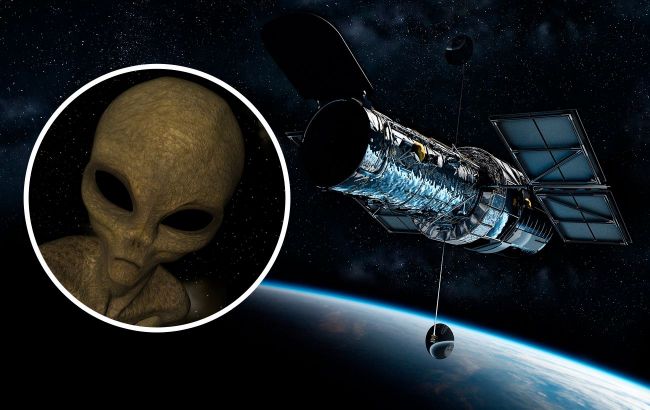Astronomer on chances of discovering extraterrestrial life in space
 Can extraterrestrial life exist? (photo: RBC Ukraine)
Can extraterrestrial life exist? (photo: RBC Ukraine)
Humanity has been searching for traces of extraterrestrial civilizations in space for a long time, but so far, they have not been discovered. However, how realistic are the chances that they could exist there at all?
The answer to this question was provided by the head of the laboratory at the Main Astronomical Observatory of the National Academy of Sciences of Ukraine, Ivan Kryachko, in an exclusive interview with RBC-Ukraine.
Is there a twin Earth in the universe
"Astronomers are trying to find a planet similar to Earth, but they haven't found our 'twin' yet. There are planets with solid surfaces - exoplanets that orbit other stars, not the Sun. However, a planet that closely resembles Earth certainly exists, and we will definitely find it. But whether there is life there is a more complex question... Currently, new telescopes like the James Webb and the next generation will focus on this issue," explained the scientist.
He added that since the 1960s, there has been a program to search for radio signals from other civilizations, and radio telescopes have been observing this. Another method for searching for extraterrestrial life is to study the atmospheres of other planets.
"If we find a gas there that can only appear on Earth as a result of human activity, it could be evidence that someone is there. It won't be 100% proof that there are intelligent beings because there may be some processes occurring there that are natural to those conditions," Kryachko explained.
The scientist emphasized that the more complex question is the detection of intelligent life.
"Currently, we've discovered about 10,000 planets, but in reality, there are millions of them in our galaxy, and there are many galaxies in the universe. Why hasn't anyone contacted us during this time? This is known as the Fermi Paradox," the astronomer added.
The Fermi Paradox arises from the vastness of the universe, where one would expect other forms of life to exist, but the fact that humans haven't found any is paradoxical.
"Earth is about 4.5 billion years old, while there are stars that are 10 billion years old, and planets around them may have formed long before Earth. Therefore, civilizations on these planets could have arisen earlier than ours. They could have already colonized their planetary systems and traveled between stars, even reaching us, but they are not here. That's the Fermi Paradox," the scientist explained.
Can extraterrestrial life exist
The Fermi Paradox arises from the vastness of the universe, where one would expect other forms of life to exist, but the fact that humans haven't found any is paradoxical.
"Earth is about 4.5 billion years old, while there are stars that are 10 billion years old, and planets around them may have formed long before Earth. Therefore, civilizations on these planets could have arisen earlier than ours. They could have already colonized their planetary systems and traveled between stars, even reaching us, but they are not here. That's the Fermi Paradox," the scientist explained.

